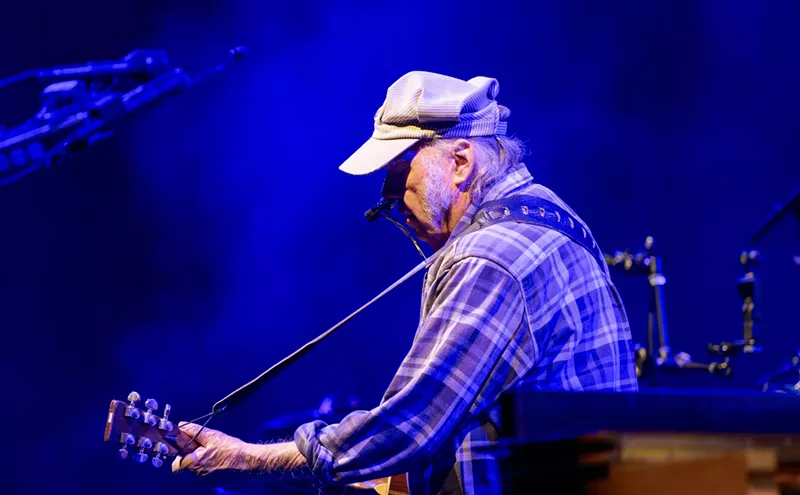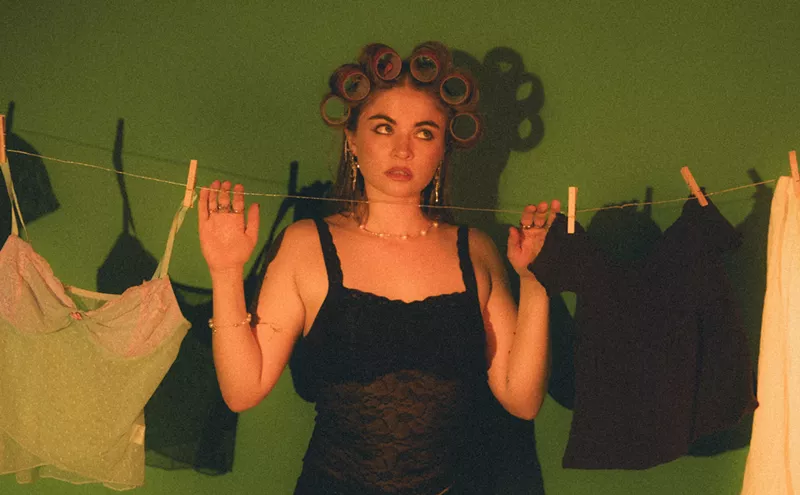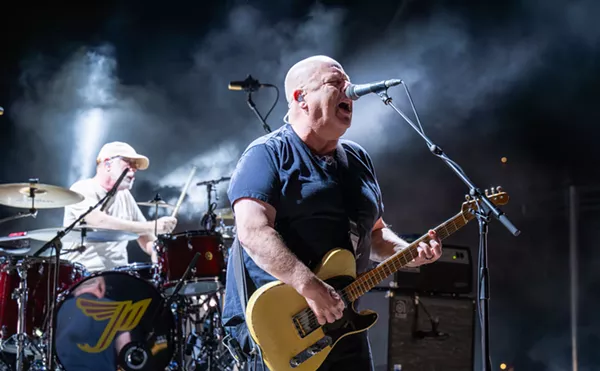Although the names Nahum, Soul Bender and the Bedraggled are probably lost on most people familiar with the work of Reverend Deadeye, from the early '90s until 2003, Brent Burkhart played in those dark, experimental rock bands before launching his solo side project. Casting off former pseudonyms like Saint Absinthe, he embraced the music of his youth as Reverend Deadeye.
"The music that I play now comes from an earlier time period of my life, from when I was a kid," Burkhart explains. "The music I listened to in high school pushed me away from that. I started listening to my old records again, like releases on Canaan Records, and they had crazy old bands like Hemphills, the Happy Goodman Family, the Blackwood Brothers, a lot of quartets. I definitely had some Louvin Brothers, Johnny Cash and Chuck Wagon Gang. Country gospel is the basis of what I do now."
Burkhart developed an appreciation for the soulfulness and authenticity of gospel music and the emotionally stirring power of tent revivals growing up. The son of Christian missionaries from a church in Greeley, he came of age on a Navajo reservation in northeastern Arizona. Meshing gospel with the blues he came to embrace later in life, Burkhart struck upon a sound that allowed him to perform the songs alone or with minimal accompaniment. In his early shows as Reverend Deadeye, he came across as a wild-eyed preacher possessed of fiery rhetoric and an absolute conviction in his message. For years, Deadeye played shows in Denver and became something of a staple in the scene.
In 2008, Burkhart's personal life took a turn for the worse, compounded by the death of his father, and he had something of a crisis of conscience. He decided to embark on a nomadic lifestyle and tour as often as possible. In your thirties, this kind of decision probably seems foolhardy, but in many ways, it has paid off for the Reverend, who was one of the subjects of the film The Folksinger, as well as the German documentary Can't Take It With You When You Die!
With tours of Europe under his belt, Burkhart has found a receptive audience there, and his latest album, The Trials and Tribulations of Reverend Deadeye, was recently released on the Hazelwood imprint in Germany, where he played a show for 350 people.
"In Europe, being an artist is a legitimate thing to do," says Burkhart, noting the difference between that continent and ours. "You don't get looked at like a second-class citizen. Here, if you do any kind of art, people wonder what you're going to do with it. But when you make a certain amount of money, you've made it. Then you're okay."










